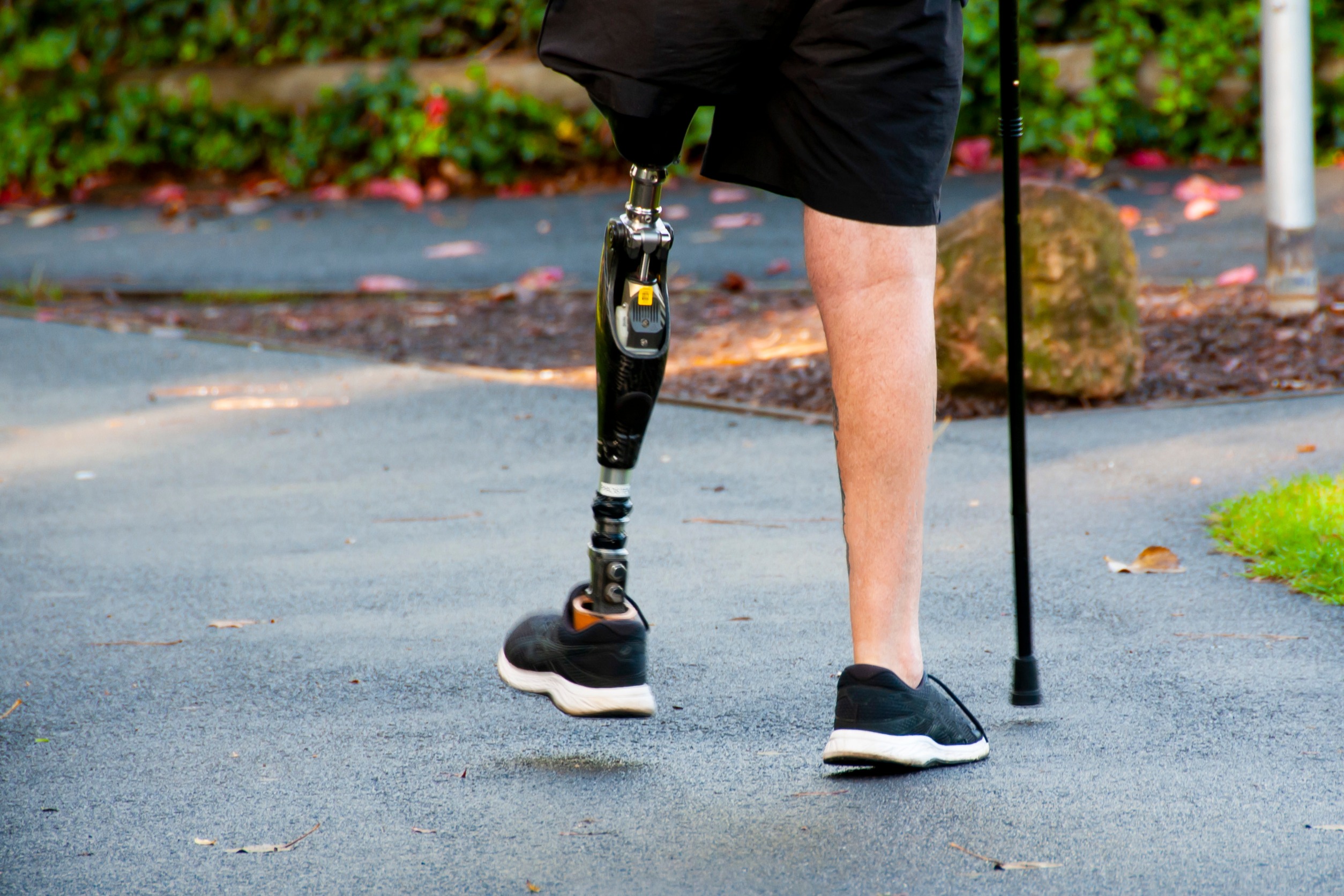BY THE OPTIMIST DAILY EDITORIAL TEAM
MIT researchers made a significant advancement in prosthetic technology by producing a bionic limb that can be controlled directly by the wearer’s brain impulses. This device promises to greatly improve amputees’ quality of life by delivering a more natural and responsive walking experience.
Unparalleled mobility and natural gait
The cutting-edge prosthetic, described in a paper published in the journal Nature Medicine, greatly enhances walking speed and adaptability for its wearers. The “neuroprosthetic” increased walking speed by 41 percent over traditional prostheses, allowing peak speeds equivalent to those of people without leg amputations. Furthermore, this incredible prosthetic limb can adjust in real time to different situations, such as slopes, stairs, and restricted passageways.
“This is the first prosthetic study in history that shows a leg prosthesis under full neural modulation, where a biomimetic gait emerges,” said Hugh Herr, co-director of the MIT Center for Bionics and himself a double amputee. “No one has been able to show this level of brain control that produces a natural gait, where the human’s nervous system is controlling the movement, not a robotic control algorithm.”
Advanced surgical techniques and technology integration
The study included seven individuals who had an experimental procedure known as “agonist antagonist myoneural interface” (AMI). This method enables patients to accurately feel the position, speed, and torque of their limbs. Unlike conventional prosthetics, which rely on robotic controllers and have limited spatial awareness, AMI surgery allows muscles in the residual limb to communicate organically with each other. The team released a video that shows just how naturally the user moves with the prosthetic.
The bionic leg recognizes brain signals transmitted to the residual limb and converts them into movement. This direct neurological link creates a more natural and intuitive gait. “Because of the AMI neuroprosthetic interface, we were able to boost that neural signaling, preserving as much as we could,” noted Hyungeun Song, principal author and MIT Media Lab postdoc. “This was able to restore a person’s neural capability to continuously and directly control the full gait, across different walking speeds, stairs, slopes, even going over obstacles.”
Improved quality of life
The implications of this technology go beyond simple mobility. “Not only will they be able to walk on a flat surface, but they’ll be able to go hiking or dancing because they’ll have full control over their movement,” Herr told The Guardian. This increased control over mobility can significantly improve amputees’ overall quality of life, allowing them to participate in a broader range of activities.
“This work represents yet another step in us demonstrating what is possible in terms of restoring function in patients who suffer from severe limb injury,” said Matthew Carty, coauthor and associate professor at Harvard Medical School.
Personal commitment to innovation
Herr, who lost both of his legs in a blizzard in 1982, is particularly interested in the technology’s success. He has expressed a desire to get the procedure and use the new prosthetic himself. “When I walk, it feels like I’m being walked because an algorithm is sending commands to a motor, and I’m not,” he told The Washington Post. Herr is considering getting revision surgery to equip himself with similar bionic legs “in the coming years,” as he mentioned to The Guardian.
A bright future for prosthetics
The advancement in prosthetic technology is a key step toward improving amputees’ movement and autonomy. By directly combining brain impulses with prosthetic movement, MIT researchers’ neuroprosthetic limb presents a hopeful future in which amputees can reach unparalleled degrees of natural movement and control.











